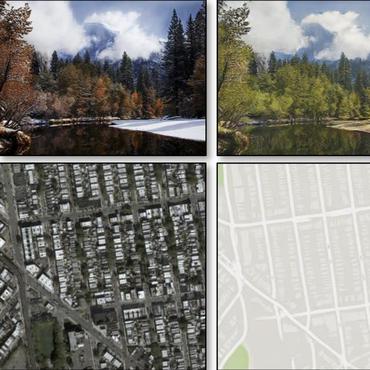Adversarial Discriminative Domain Adaptation
Adversarial learning methods are a promising approach to training robust deep networks, and can generate complex samples across diverse domains. They also can improve recognition despite the presence of domain shift or dataset bias: several adversarial approaches to unsupervised domain adaptation have recently been introduced, which reduce the difference between the training and test domain distributions and thus improve generalization performance. Prior generative approaches show compelling visualizations, but are not optimal on discriminative tasks and can be limited to smaller shifts. Prior discriminative approaches could handle larger domain shifts, but imposed tied weights on the model and did not exploit a GAN-based loss. We first outline a novel generalized framework for adversarial adaptation, which subsumes recent state-of-the-art approaches as special cases, and we use this generalized view to better relate the prior approaches. We propose a previously unexplored instance of our general framework which combines discriminative modeling, untied weight sharing, and a GAN loss, which we call Adversarial Discriminative Domain Adaptation (ADDA). We show that ADDA is more effective yet considerably simpler than competing domain-adversarial methods, and demonstrate the promise of our approach by exceeding state-of-the-art unsupervised adaptation results on standard cross-domain digit classification tasks and a new more difficult cross-modality object classification task.
PDF Abstract CVPR 2017 PDF CVPR 2017 Abstract












 MNIST
MNIST
 SVHN
SVHN
 USPS
USPS
 EPIC-KITCHENS-100
EPIC-KITCHENS-100
 Jester (Gesture Recognition)
Jester (Gesture Recognition)
